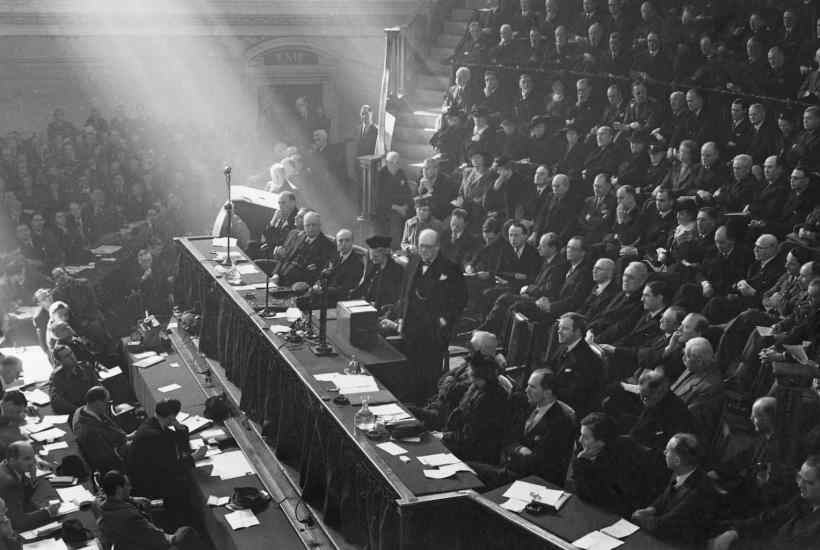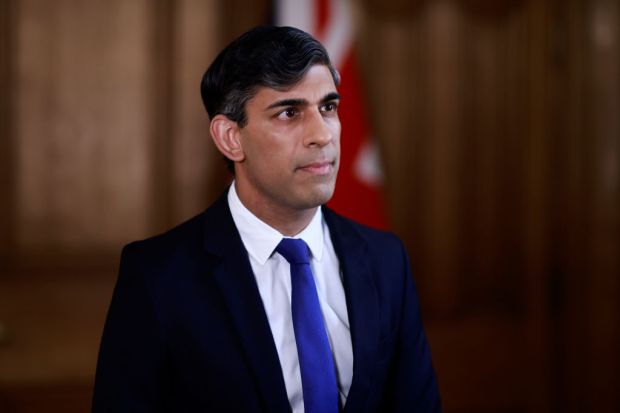One hundred years ago, on 19 October 1922, Conservative MPs gathered at the Carlton Club. There was only one subject on the agenda: whether the party should continue its coalition with Prime Minister David Lloyd George’s wing of the Liberal party, or fight the coming General Election on its own.
Last night, by a savage irony, Tory MPs once again assembled at the Carlton Club for a dinner to commemorate that historic meeting – which resulted in the collapse of the coalition, the resignation of Lloyd George, and the formation of the 1922 Committee, the trade union of Tory backbenchers that now holds Liz Truss’s rapidly diminishing political future in its hands.
In those more deferential and dignified days, there were none of the chaotic scenes that have marked the collapse of Truss’s government: no policy U-turns or resignations of senior ministers, no manhandling of rebellious MPs, and no furious backbenchers tweeting and sounding off before the TV cameras. Instead, in a series of measured speeches, the Tory MPs told their leaders that the ‘dynamic force’ that was Lloyd George had already split his own Liberal party and was in danger of doing the same to the Conservatives.
When a vote was taken, some 187 MPs plumped to bring down the government with only 88 defending it. Lloyd George resigned the next day – he never held office again – the coalition dissolved, and the Tory leader Bonar Law succeeded him as Prime Minister of a purely Tory government. Having once tasted their power, the Tory MPs next year formalised their influence as the 1922 Committee – the fabled men (and women) in grey suits whose sad task it is to tell failing Tory PMs when their time is up.
Tory MPs have exercised that power sparingly yet decisively in the century since that Carlton Club meeting. In 1940, Prime Minister Neville Chamberlain resigned after his Tory-dominated national government’s massive majority was cut to 80 by a backbench revolt against his fumbling conduct during the second world war. In the parliamentary debate held after the Nazi occupation of Norway, backbencher Leo Amery famously quoted Oliver Cromwell when he told Chamberlain: ‘You have sat here too long for any good you have been doing. Depart, I say, and let us have done with you: in the name of God go!’
In those distant days, the government whips were not the feeble figures of today, utterly unable to prevent their mutinous troops from rebelling, plotting, or even making unhelpful comments on social media. In 1940, the Tory chief whip, David Margesson, was a formidable figure: a towering presence who kept his ranks in line with tight military discipline laced with a hint of sheer fear. After the newly elected John Profumo, the youngest MP in the House, joined the Norway rebels, Margesson told him: ‘I can tell you this, you utterly contemptible little shit. Every morning when you wake up for the rest of your life you will feel ashamed of what you did last night’. Despite Margesson’s withering scorn, Profumo and the rebels achieved their aim – Chamberlain was brought down and the more bellicose and effective Winston Churchill became PM in his place, presiding over a new coalition with Labour that eventually won the war.
After the 1956 disaster of the Suez Crisis, Britain’s hamfisted invasion of Egypt along with Israel and France, backbench pressure forced the resignation of the responsible PM, Anthony Eden. In 1963 a series of spy and sex scandals, including one featuring the same John Profumo, caused a loss of Tory members’ confidence in their government that culminated in the resignation of Eden’s successor Harold MacMillan.
Since then, more Tory prime ministers and party leaders have been forced out by their own MPs than have lost power in an election. The melancholy roll call includes Edward Heath, Margaret Thatcher, Ian Duncan Smith – the only Tory leader to have been ousted by his own MPs without fighting a general election – Theresa May and Boris Johnson. Now it seems certain that Liz Truss will add her name to this steadily lengthening list. The cacophony of her short and inglorious reign reflects a party too long in power that no longer knows why it is there.
Got something to add? Join the discussion and comment below.
Get 10 issues for just $10
Subscribe to The Spectator Australia today for the next 10 magazine issues, plus full online access, for just $10.



















Comments
Don't miss out
Join the conversation with other Spectator Australia readers. Subscribe to leave a comment.
SUBSCRIBEAlready a subscriber? Log in